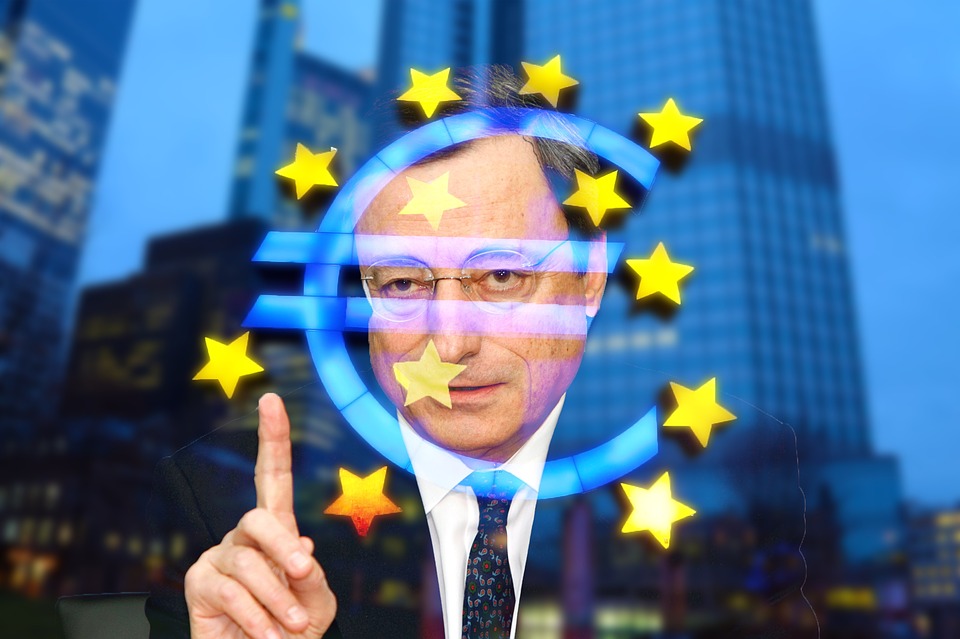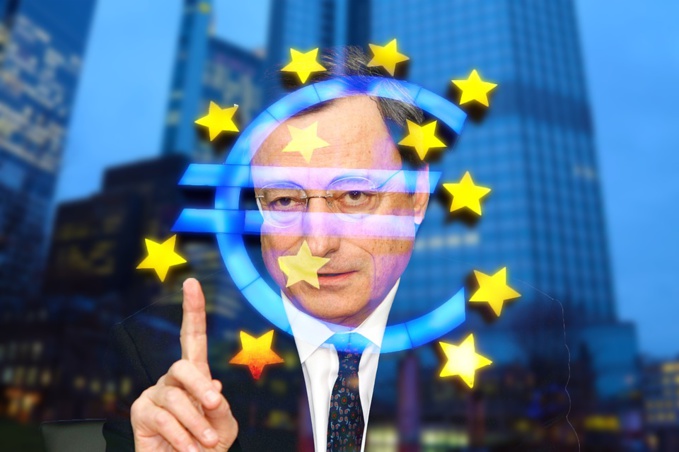The inflation rate has been extremely low since 2012, and hasn’t met expectations of prices surge in view of the economic recovery. However, the lowflation has nevertheless rose from cyclical factors, and is not a prove to ineffectiveness of the monetary authorities’ actions, according to a series of articles published by the European Central Bank. Recall, the ECB's mandate is supposed to maintain price stability; at the same time, inflation target of 2% is equal to that in the US. Yet, according to the ECB's forecast, this figure will not be reached by the end of 2019, and inflation expected at the end of the period will amount to just 1.7%.
The euro zone crisis was followed by external shocks, such as slump in oil prices. The consequences have become an obstacle to higher prices, the authors point out. As a whole, low inflation has unpleasant consequences: in particular, market players are losing faith in the Central Bank’s ability to achieve the target value and their long-term expectations are fading. The most effective remedy for this is redemption of assets (quantitative easing), even though market participants need some time to become convinced in the program’s effectiveness, according to the ECB's reports. Thus, annual growth of prices in the euro area in December accelerated to 1.1%. This was the highest level in three years (0.2% as of December last year), and basically it was a result of higher energy prices. In December last year, the regulator’s council decided to extend the QE, launched in March 2015, for further nine months. At that, volume of buyout has been lowered from € 80 billion to € 60 billion per month.
However, not everyone agrees with this interpretation. Bank for International Settlements (BIS), which acts as a bank for central banks, on the contrary, criticizes the ECB’s overly loose monetary policy. The institution has repeatedly called upon central banks to act less aggressively to counter low inflation. BIS warned that their efforts may be counterproductive, in particular, due to falling profitability of European banks. The latter now are afraid to follow the ECB’s steps to cut rates on deposits. Deterioration of banks' balance sheets, in turn, may result in a slowdown in credit growth, the BIS warned.
According to the UN’s "World Economic Situation and Prospects," average inflation accelerated to 2.4% in 2016 throughout the world (2.1% in 2015 was the lowest level since 2009). In developed countries, it did not exceed 1% due to lower prices on energy commodities, low wage growth and weak demand. Japan and the euro area observed deflation in the first half of the year. Acceleration of inflation is usually caused by weakening of national currencies or local increase in prices.
source: ecb.europa.eu
The euro zone crisis was followed by external shocks, such as slump in oil prices. The consequences have become an obstacle to higher prices, the authors point out. As a whole, low inflation has unpleasant consequences: in particular, market players are losing faith in the Central Bank’s ability to achieve the target value and their long-term expectations are fading. The most effective remedy for this is redemption of assets (quantitative easing), even though market participants need some time to become convinced in the program’s effectiveness, according to the ECB's reports. Thus, annual growth of prices in the euro area in December accelerated to 1.1%. This was the highest level in three years (0.2% as of December last year), and basically it was a result of higher energy prices. In December last year, the regulator’s council decided to extend the QE, launched in March 2015, for further nine months. At that, volume of buyout has been lowered from € 80 billion to € 60 billion per month.
However, not everyone agrees with this interpretation. Bank for International Settlements (BIS), which acts as a bank for central banks, on the contrary, criticizes the ECB’s overly loose monetary policy. The institution has repeatedly called upon central banks to act less aggressively to counter low inflation. BIS warned that their efforts may be counterproductive, in particular, due to falling profitability of European banks. The latter now are afraid to follow the ECB’s steps to cut rates on deposits. Deterioration of banks' balance sheets, in turn, may result in a slowdown in credit growth, the BIS warned.
According to the UN’s "World Economic Situation and Prospects," average inflation accelerated to 2.4% in 2016 throughout the world (2.1% in 2015 was the lowest level since 2009). In developed countries, it did not exceed 1% due to lower prices on energy commodities, low wage growth and weak demand. Japan and the euro area observed deflation in the first half of the year. Acceleration of inflation is usually caused by weakening of national currencies or local increase in prices.
source: ecb.europa.eu



















